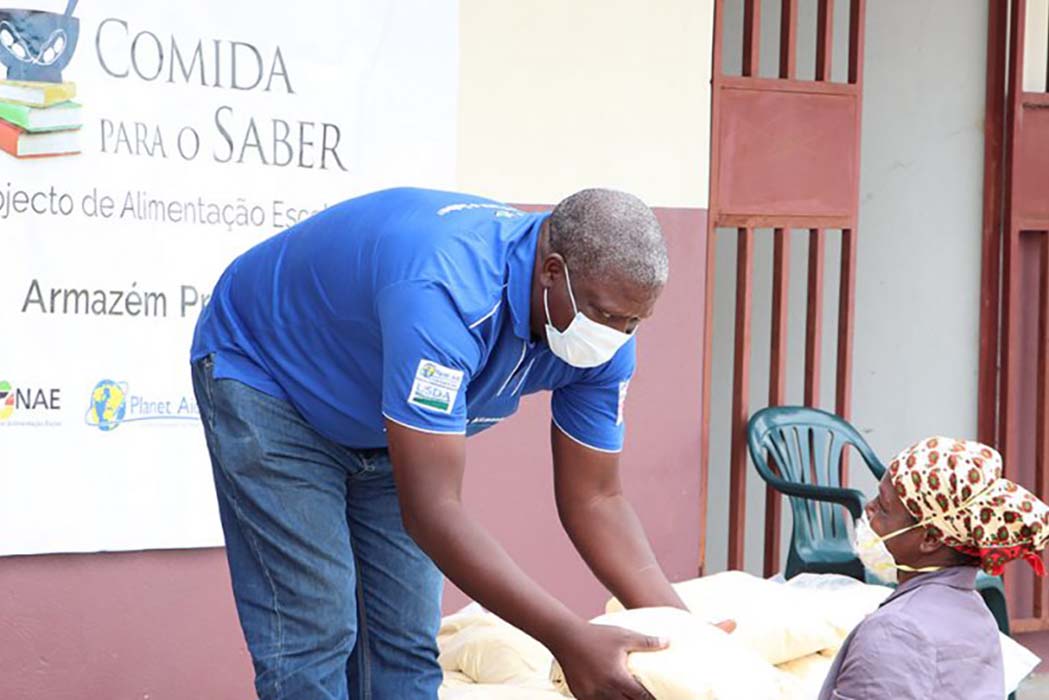This week, the Planet Aid Food for Knowledge (FFK) school feeding program began the process of distributing take-home rations of food to 92,278 students in the districts of Manhiça Magude, Matutuíne and Moamba in Maputo Province. The Food for Knowledge project is a comprehensive school feeding, nutrition and education initiative funded by the U.S. Department of Agriculture (USDA) as part of the McGovern-Dole International Food for Education and Child Nutrition Program.

The project, implemented by ADPP in partnership with the Ministry of Education and Human Development (MINEDH) and Planet Aid, expects the distribution process to take a little over one month.
With the emergence of the Covid-19 pandemic and the temporary closure of in-person classes in early 2020, the project’s provision of school meals to 271 beneficiary schools was suspended, leaving over 90,000 students without this daily ration. This initiative is working with parents and guardians to provide those rations while schools remain closed.
Speaking at a ceremony to launch the campaign, which took place at the Primary and Complete School of Barrica in the district of Manhiça on Tuesday, Deolinda Cossa, Provincial Director of Education, said that school feeding initiatives are especially important because in addition to providing students with a nutritional base, they help to ensure their retention in school.
We are honored to have this dry ration distribution initiative, particularly as it helps children remain connected to school, despite having to study at home now, said Cossa.
According to Isaías Wate, Project Director, 93,015 packages of 6.3 kilograms of USDA-provided Corn-Soy Blend Plus (CSB+) will be distributed to students from 271 schools in the districts of Manhiça, Magude, Matutuíne and Moamba over the coming weeks.
Parents were enthusiastic about the initiative, as many see the challenges to make sure that students remain fed. Madalena Jorge is one of the parents who faces difficulties to provide three meals a day during the Covid-19 pandemic. She notes that because children at home do not have access to a daily school meal, which normally also serves to reduce family food expenses, the situation has become very difficult.
The children are suffering. With schools closed, the situation has become more complicated for parents and guardians. The food we received today came at a good time and will help us a lot. The children will be very happy, so we thank [the project] very much, said Magdalena.
Almeida Zacarias, representative for USDA, explained that this initiative responds to the project’s request that stored food not deteriorate in warehouses, to which USDA responded positively, thus ensuring the continuity of school meal distribution while classes are not in session.
In addition to food distribution, the Food for Knowledge project has also addressed school closures by broadcasting daily classes via radio and television, including subjects in Xichangana and Rhonga for 1st to 3rd grade students, and in Portuguese for 3rd grade students.

